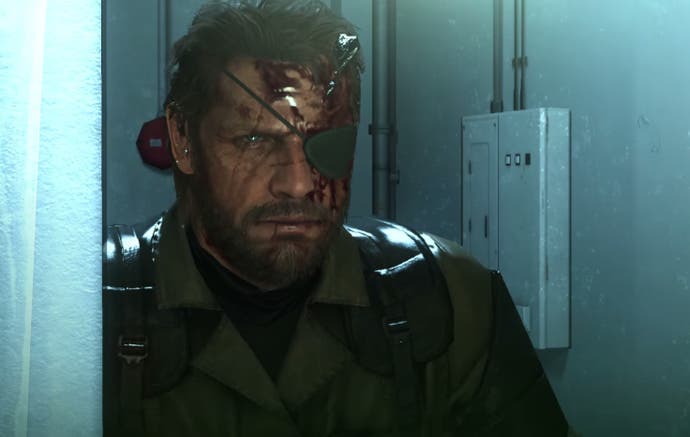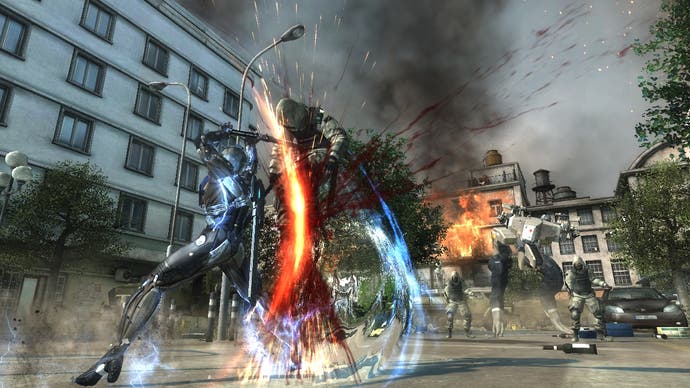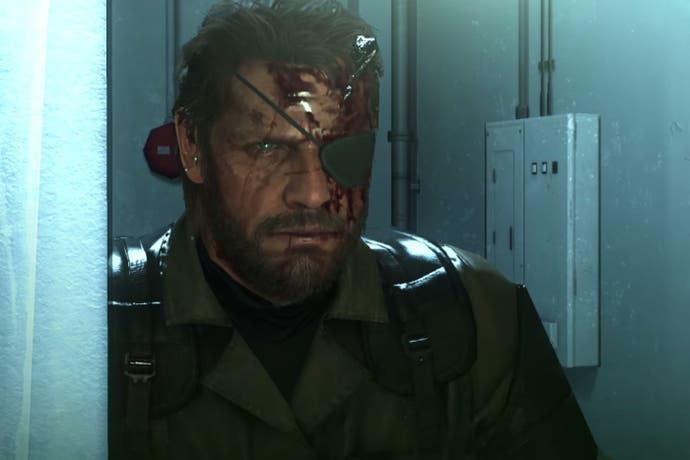Where can Metal Gear go from here?
Who's the Boss?
After 28 years Metal Gear Solid is finished. Or at least that's what the internet would have you believe. After all, the mastermind behind the series, Hideo Kojima, has unceremoniously parted ways with Konami, the publisher who owns the IP. Konami has been wishy-washy in its future plans since then; the publisher stated in March that it would continue to develop Metal Gear games after MGS5: The Phantom Pain, but then the company's worldwide technology director Julien Merceron left last month and reports indicated it was because Konami would be moving away from console games completely outside of its football series PES.
But let's be optimistic for a moment, shall we? If The Phantom Pain sells like gangbusters - and all signs suggest it's done well - and Konami decides to reconsider its alleged stance on console gaming, would we want another Metal Gear game without Kojima at the helm?
The first answer that springs to mind is a blunt 'no'. Metal Gear was Kojima's baby after all. It was Kojima who inadvertently created one of gaming's biggest icons by stuffing a Kurt Russell lookalike in a cardboard box; it was Kojima who fooled the world with a comically misleading ad campaign for Metal Gear Solid 2; it was Kojima who was responsible for the greatest handshake in all of video games. Metal Gear without Kojima just isn't Metal Gear at all.
Or is it? How quickly we are to forget that one of the finest Metal Gear games, in my mind anyway, wasn't helmed by Kojima. It was called Metal Gear Rising: Revengeance and it was awesome!

Revengeance did more than just coin one of the greatest, dumbest words committed to a game's cover. Sure, Platinum Games' spin-off was a completely different beast that almost entirely nixed stealth in favour of amputating limbs with an energy sword, but that doesn't make it any less of a game (even if I appreciate that it appeals to a slightly different audience, but I reckon there's a lot of overlap).
Revengeance is a fun game for all the same reasons other Platinum games like Bayonetta and Vanquish are ace. Its combat is fast, frantic, deep, and stylishly executed. But what I admire most about Revengeance is how much it captured the flavour of the Koji-verse without its master on board. It didn't feel like a bunch of people emulating Kojima by tossing in referential codecs and a few familiar images like the Cardboard Box (this is the only series where "Cardboard Box" deserves to be capitalised). Instead, it felt like the people at Platinum simply tapped into the mindset of Kojima, but put their own spin on it.
This is obvious in the type of game it is (Platinum doesn't really do stealth), but it's done in more subtle ways too. The completely nonsensical plot, the Mariachi costume, obnoxious children, robot dinosaurs (why must they roar?), and the fact that the game's big baddie is a square-looking senator who hulks out with nanomachines all feel like a nod to Kojima. But there are other odd touches that only fresh blood could bring.
An early encounter with an invincible back-flipping cat feels like something that would be in a Kojima game, yet it's completely original rather than referential. The upbeat J-Pop music on the soundtrack is also unique to Platinum's palette, and optional objective of collecting severed arms from specific marked enemies is true to Kojima's vision of body part-specific damage (remember shooting the radios in MGS2?), yet smartly repurposed to serve a completely different vision. Heck, even the word "Revengeance" captures the ludicrous flavour that's made the franchise such a phenomenon, even if Kojima himself didn't pen the hilarious subtitle. It's still the Metal Gear you know and love, just different.

This isn't the only time a famous creator has handed off their series to another. We saw this when Shigeru Miyamoto stepped down from the director's chair to let Eiji Aonuma helm Majora's Mask. And it turned out quite well.
Majora's Mask kept all the things people loved about Zelda - the dungeons, overworld, items, and often even characters - but radically flipped the script to make one of gaming's most offbeat mainstream releases ever. Suddenly a Zelda game had a time limit (which proved to be very divisive). It had complex human drama. It had moments of absolute horror sharing real estate with pure silliness. It was Zelda with a dash of David Lynch, and feels like the kind of game that would be impossible under Miyamoto.
Aonuma took things in a completely different new direction with his next Zelda title, Wind Waker, which bravely opted to flood the series' beloved land of Hyrule after its 16-year stint as one of gaming's most iconic environments. He also turned Link into and androgynous looking rapscallion and reimagined the world as looking like a cartoon. These decisions caught some flak at the time (which is probably why Twilight Princess played things safer), but in retrospect are hailed as breathing new life into an arguably staid franchise.
Konami's even attempted a similar trick before without going the Revengeance spin-off route when it handed the reins of Castlevania over to Mercury Steam after letting Symphony of the Night producer Koji Igarashi handle the series for over a decade. The resulting Lords of Shadow trilogy was certainly divisive (I liked Igarashi's 2D "Metroidvania" games more), but they weren't without their charms. Personally, I thought they had some pretty stellar art direction and it was interesting to see this unknown Spanish studio offer their own take on a series that remained fun, but hadn't evolved in any meaningful way in over a decade.
There is no doubt in my mind that there are other people who could do the Metal Gear series justice. Whether Konami will give anyone else the budget and creative freedom to do something that experimental is another issue - and, to be honest, that seems pretty unlikely given the publisher's current mode of thinking. We may very well get a tepid mobile game about trading soldiers on Mother Base, but it's not unfathomable that Konami could drastically reboot the series under a new regime. Metal Gear has been untethered from the man who created it, but that doesn't mean it won't be reclaimed by a new Big Boss.

